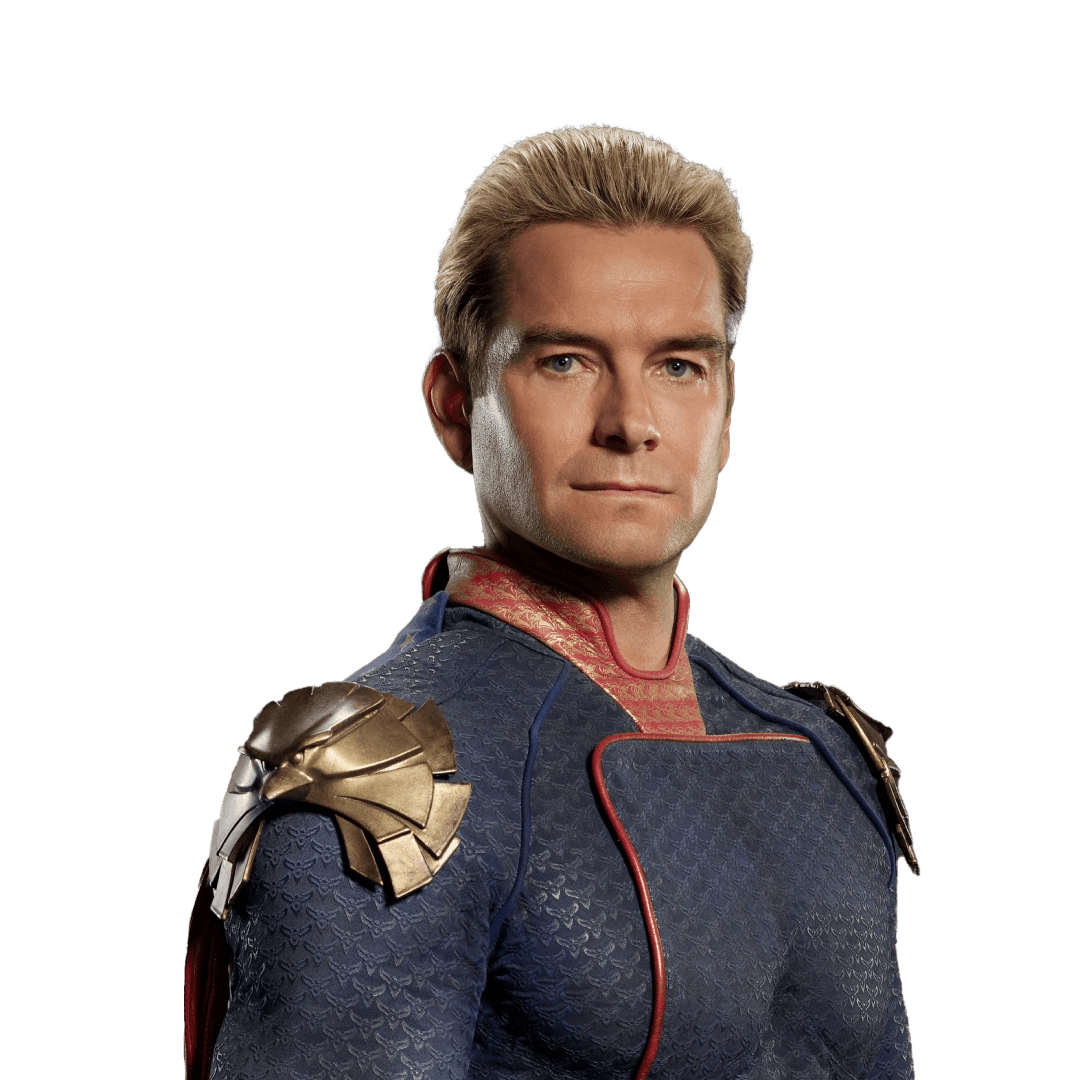In the vast realm of superhero narratives, few characters have stirred as much intrigue and controversy as Homelander. Portrayed in the acclaimed series "The Boys," Homelander is not just your typical superhero; he embodies the darker, more complex side of heroism, making him a compelling figure in contemporary pop culture. As the leader of The Seven, he represents a facade of virtue and justice while simultaneously exhibiting traits of narcissism and brutality.
Homelander's character challenges our traditional perceptions of heroism, inviting viewers to question the very nature of power and morality. With his iconic cape and charming smile, he draws admiration and fear, making him a fascinating study of duality. This article delves deep into the world of Homelander, exploring his origins, motivations, and the moral dilemmas he presents.
Through an analysis of Homelander's character, we aim to uncover the layers that make him a standout figure in the superhero genre. From his childhood trauma to his ruthless pursuit of power, we will examine how these elements shape his actions and relationships in "The Boys." Join us as we navigate the complexities of Homelander's psyche and the impact he has on the world around him.
Who is Homelander?
Homelander is a fictional character created by writer Garth Ennis and artist Darick Robertson for the comic book series "The Boys." He is portrayed by Antony Starr in the Amazon Prime Video adaptation. As the leader of The Seven, Homelander is a powerful superhero with a dark and twisted personality. He has superhuman strength, flight, and heat vision, making him one of the most formidable characters in the series.
What is Homelander's Biography?
Homelander’s backstory is pivotal in understanding his character. He was raised in a lab as part of a government experiment that aimed to create the ultimate superhero. This upbringing, devoid of love and normal human interaction, left him emotionally stunted and deeply insecure.
| Attribute | Details |
|---|---|
| Real Name | Homelander |
| Portrayed by | Antony Starr |
| First Appearance | The Boys #1 (2006) |
| Powers | Superhuman strength, flight, heat vision |
| Affiliation | The Seven |
What Makes Homelander a Villain?
Homelander's villainy is complex and multifaceted. While he possesses the powers of a superhero, his actions often reflect the traits of a tyrant. His need for adoration and validation drives him to commit heinous acts, including manipulation, deceit, and even murder. This raises the question: can someone with heroic abilities truly be considered a hero if their motivations are rooted in selfishness?
How Does Homelander's Childhood Shape His Character?
Homelander's traumatic childhood plays a significant role in shaping his personality. Isolated from human affection and raised in a sterile laboratory environment, he developed a distorted view of love and power. This lack of nurturing contributed to his narcissism and inability to form genuine connections with others. As viewers, we are left to ponder how much of his villainy is a product of his upbringing versus inherent nature.
What Role Does Homelander Play in "The Boys"?
In "The Boys," Homelander serves as the primary antagonist, representing everything that the titular group stands against. His character embodies the critique of modern superhero culture, where corporations often exploit heroes for profit and public image. Homelander's actions frequently highlight the moral ambiguities faced by individuals in power, making him a symbol of the dark side of heroism.
Can Homelander Be Redeemed?
The question of redemption looms large in discussions about Homelander. Given his deep-seated trauma and the choices he makes, is there a path for him to seek forgiveness or change? The series often teases moments of vulnerability, suggesting that beneath his cold exterior lies a deeply wounded individual. However, his actions ultimately leave viewers questioning whether redemption is possible for someone so entrenched in darkness.
How Does Homelander Reflect Societal Issues?
Homelander is not just a fictional character; he mirrors real-world issues surrounding power, celebrity culture, and the consequences of unchecked authority. His character serves as a cautionary tale about the dangers of idolizing figures without scrutinizing their actions. As society grapples with issues of accountability, Homelander stands as a stark reminder of the potential for corruption within those we hold in high esteem.
What is the Future of Homelander in "The Boys"?
As the narrative of "The Boys" progresses, the future of Homelander remains uncertain. Will he continue down his path of destruction, or will circumstances force him to confront his demons? The evolution of his character will undoubtedly be a focal point in upcoming seasons, keeping viewers on the edge of their seats as they witness the tumultuous journey of one of the most complex antiheroes in modern storytelling.
In conclusion, Homelander represents a multifaceted exploration of heroism and villainy. His character challenges us to reflect on the nature of power, the impact of upbringing, and the potential for redemption. As we continue to engage with his story in "The Boys," we are reminded that the line between hero and villain is often blurred, leaving us to navigate the complexities of morality in a world where the notion of a "superhero" is anything but straightforward.
You Might Also Like
Unveiling The Life Of Lillo Brancato's Wife: A Journey Of Love And ResilienceUnveiling Tim Miller's Family Roots: A Glimpse Into His Parents
Nikki Rodriguez: A Rising Star In The Entertainment Industry
Unveiling The Enigma: Colin Egglesfield's Wife
Pablo Gavi: The Rising Star Of Football
Article Recommendations


